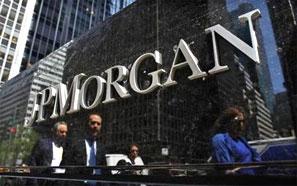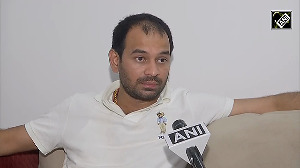J P Morgan Chase & Co CEO Jamie Dimon has pleaded with and complained to the U.S. Justice Department but cannot convince the government to end its criminal probe of his bank because prosecutors are not yet certain of their findings, people familiar with the matter said. Dimon has negotiated a tentative $13 billion deal to settle many of the US investigations into mortgage bonds that JPMorgan - and the banks it bought during the financial crisis - sold to investors.
Dimon has negotiated a tentative $13 billion deal to settle many of the US investigations into mortgage bonds that JPMorgan - and the banks it bought during the financial crisis - sold to investors.
But the criminal investigation proved to be a sticking point during negotiations, the sources said, and Dimon's inability to win this point underscores the breadth of the problems his bank faces even after it resolves these mortgage suits.
The criminal probe relates to whether J P Morgan misrepresented the quality of the mortgages it was packaging into bonds and selling to investors.
While JPMorgan was not about to admit wrongdoing, Dimon suspected that ending the criminal probe was a long shot and the bank was not interested in holding up all the other settlements to wait for that, one of the sources said. Civil cases require a lower burden of proof than criminal cases, and can often be wrapped up quicker than parallel criminal proceedings.
JPMorgan has set aside a total of $23 billion to pay for legal issues, and faces more than a dozen probes globally.
Prosecutors did not want to end the criminal probe before they were sure of its findings, said several people familiar with the probe and other investigations of the banks. They said the investigation could take another several months.
US President Barack Obama's administration has faced extensive criticism for its failure to prosecute bankers criminally for behavior that led to the financial crisis, which by some estimates has cost the United States economy nearly as much as it earns in a year.
Obama has set up a task force to investigate fraud and other activity that led to the meltdown. Former prosecutors and criminal defense lawyers not involved with the talks said that ending an early-stage criminal inquiry as part of the broader settlement could have created the appearance that JPMorgan was buying the right to flout the law.
The Wall Street Journal reported on Sunday that the Justice Department hopes to use its settlement with JPMorgan as a template for deals with other banks. The Federal Housing Finance Agency, one of the agencies negotiating with JPMorgan, is hoping to draw a $6 billion penalty from Bank of America <BAC.N>, the Financial Times reported on Sunday. JPMorgan's settlement with the FHFA is expected to be closer to $4 billion.
Pressure from board, investors
Dimon is under pressure from investors
Beyond mortgage-related probes, federal prosecutors are looking into whether JPMorgan broke laws in its handling of derivatives bets known as the "London Whale trades" that cost the bank more than $6 billion in trading losses, and more than $1 billion in regulatory fines so far.
Also, regulators are examining whether the bank gave jobs to children of executives at Chinese-owned companies to secure business in China, and whether it played any role in manipulating benchmark interest rates known as "Libor," to name a few of the more than a dozen probes it faces globally.
While JPMorgan and the government have agreed to broad outlines of the $13 billion agreement, many parts of the settlement are not yet finalized, including a deal to resolve lawsuits from the credit union regulator, according to another person familiar with the matter. The sources all spoke on condition of anonymity because the talks are private.
The tentative deal came after Dimon, US Attorney General Eric Holder and some of their aides took part in a telephone call on Friday.
Dimon has argued to the Justice Department that much of the conduct at issue stems from two firms the bank acquired with the encouragement of the US government during the height of the crisis, Bear Stearns and Washington Mutual. It is unfair to penalize the bank for alleged sins that took place before it owned the two banks, Dimon has complained.
He has also said that the investigation will make JPMorgan reluctant to buy troubled institutions again.
Former US officials acknowledged that they encouraged JPMorgan to buy investment bank Bear Stearns and mortgage lender WaMu, but added that the bank knew it was taking a risk with the deals.
Speaking on CNBC earlier this month, former Treasury Secretary Hank Paulson said that even though JPMorgan was "begged" to make the Bear Stearns and the WaMu acquisitions, the government did not make any guarantees on legal liabilities. "Jamie knew that at the time," Paulson said.
The government has said it is taking the nature of the WaMu and Bear Stearns acquisitions into account, a source said. It is unclear how the fines the bank is expected to pay reflect that.
Some legal experts not involved with the talks say that JPMorgan does not have much of an argument when it comes to avoiding civil liability for Bear's and WaMu's mortgage abuses.
"They weren't forced into it," said Carl Tobias, a law professor at the University of Richmond. "A deal's a deal."
(Reporting by Aruna Viswanatha in Washington, and Karen Freifeld and David Henry in New York; Additional reporting by Casey Sullivan in New York; Editing by Matthew Goldstein, Dan Wilchins and Eric Walsh)











